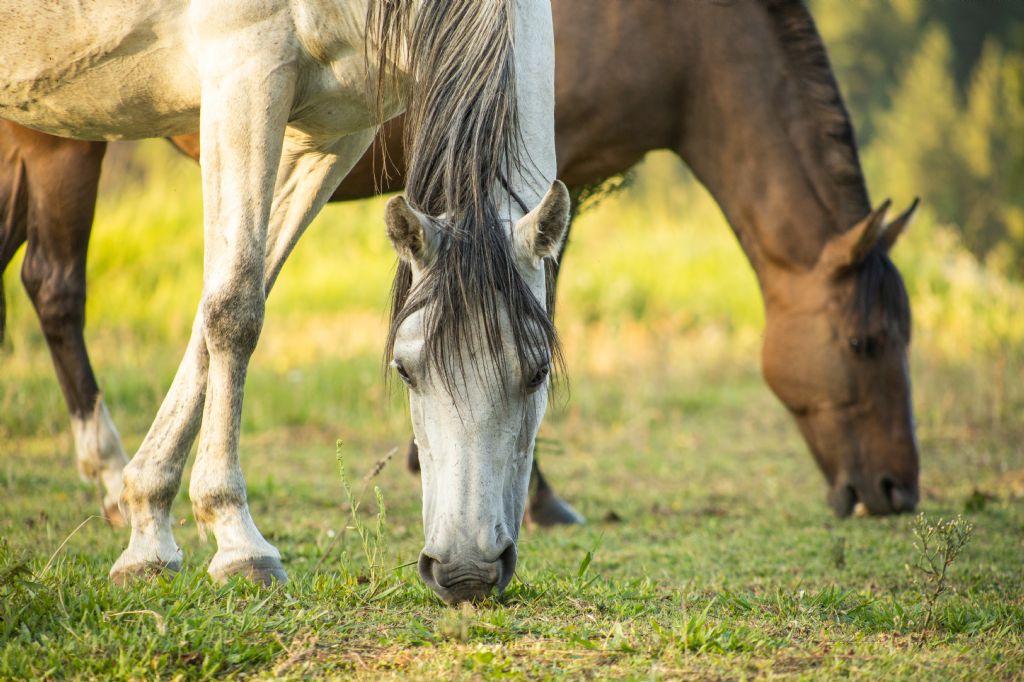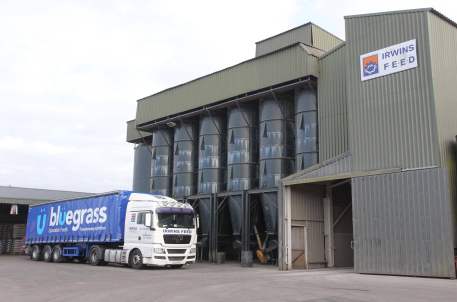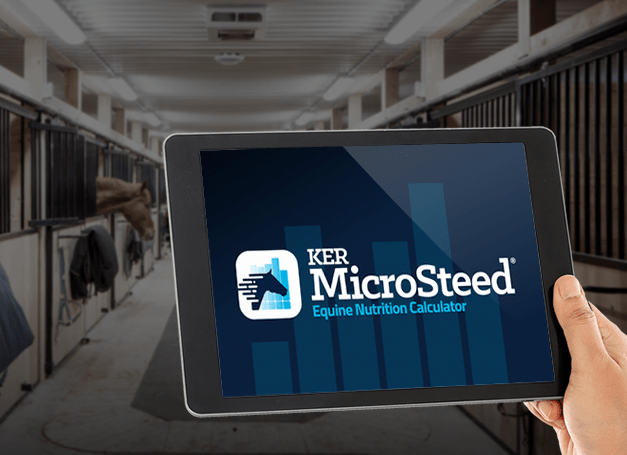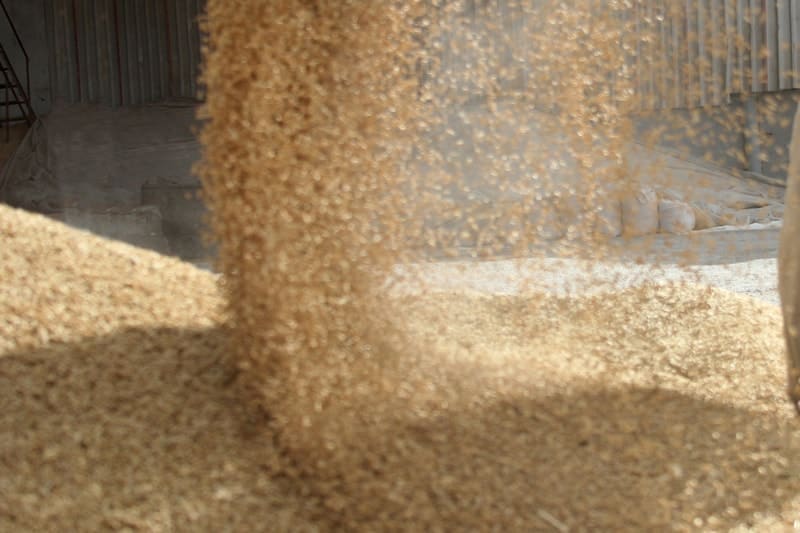
Late-Summer Grass: Why Fibre Still Matters
At first glance, lush summer fields seem like the perfect equine diet—but appearances can be deceiving.

Feeding for the Road – How to Support Your Horse’s Nutrition When Travelling
Whether you're heading to a show, clinic, or training away from home, travelling with your horse takes planning and not just for transport and tack.
.jpeg)
Recommendations for Laminitis Prone Horses
Laminitis is a debilitating disease that can cause great physical pain and potentially loss of long-term soundness.

Managing Good-Doing Horses in Summer
Managing Good-Doing Horses in Summer Summer can pose challenges for managing good-doing horses—those who gain and maintain weight easily.
.jpeg)
Spring Grazing for Horses: Benefits, Risks, and the Truth About Loose Droppings
As winter fades and pastures turn lush and green, many horse owners look forward to turning their horses out on fresh spring grass.
.jpeg)
Nutritional Considerations for Horses Returning to Work After a Winter Break
Returning horses to work after a winter break requires careful planning, particularly when it comes to their nutrition.

The Role of Omega-3 Fatty Acids in Broodmare Diets: Enhancing Fertility, Colostrum Quality, and Re-Breeding Efficiency
The Role of Omega-3 Fatty Acids in Broodmare Diets: Enhancing Fertility, Colostrum Quality, and Re-Breeding Efficiency In recent years, there has been growing recognition of the importance of omega-3...

Mare Prepare: Unlocking the Future of Equine Breeding with Epigenomics
In the world of equine breeding, success goes beyond just the genetic makeup of your mare-it's about optimising her environment and nutrition to give both her and her foal the best chance of a hea...
.jpeg)
Breeding Stallion Nutrition: Unlocking Success with Mare Prepare
When it comes to breeding success, stallion nutrition and management is as crucial as for the mare.

Epigenomics in Equine Breeding
Optimising Horse Health and Performance for a Lifetime Did you know that a horse's environment and diet can impact its genes - without changing its DNA? That's the power of epigenomics! Whil...

Respire: Unlock Peak Performance with Every Breath
For equine athletes, every breath counts, whether you're racing on the track or competing in the show ring, optimal respiratory health is essential for peak performance This is where Respire ...

Feeding the Mare in Late Gestation: Four Key Points
Pregnant mares require tailored nutrition to support their health and ensure proper foetal development.

Understanding Exercise-Induced Pulmonary Haemorrhage (EIPH) in Performance Horses
Exercise-Induced Pulmonary Haemorrhage (EIPH) is a common yet challenging condition that affects performance horses, particularly those involved in high-intensity physical activities like racing and j...
.jpeg)
The Role of Probiotics and Prebiotics in Equine Nutrition
Digestive health is key to your horse’s overall performance and well-being.

Conditioning The Poor Doer
Conditioning the Poor Doer: A Guide to Feeding Underweight Horses As the colder evenings approach and horse owners prepare to bring their horses in for winter, it’s common to notice weight loss...

Feeding a Metabolic Horse
Horses with equine metabolic syndrome (EMS) struggle to metabolize sugars due to reduced insulin sensitivity, often leading to obesity and an increased risk of hyperinsulinemia-associated laminitis.
.jpeg)
The Benefits of Feeding Horses Mash in the Summer
Soaked feeds have long been a staple in equine nutrition, often utilized during colder months or to encourage water intake.

Feeding the good doer for added ‘Oomph’
Maintaining the delicate balance between providing adequate energy and managing caloric intake is essential for the health and performance of a "good doing" horse.

The Bluegrass Extra Pro Range: Tailored Nutrition for Optimal Performance & Gastrointestinal Health
In the ever-evolving world of equine nutrition, ensuring peak health and performance is crucial.
.jpeg)
Understanding Equine Gastric Ulcer Syndrome (EGUS): Causes and Prevention
The prevalence of Equine Gastric Ulcer Syndrome (EGUS) has been reported to be as high as 90% amongst performance horses.
-
Keep Reading

Late-Summer Grass: Why Fibre Still Matters
At first glance, lush summer fields seem like the perfect equine diet—but appearances can be deceiving.... -
Keep Reading

Feeding for the Road – How to Support Your Horse’s Nutrition When Travelling
Whether you're heading to a show, clinic, or training away from home, travelling with your horse takes planning and not just for transport and tack.... -
Keep Reading

Recommendations for Laminitis Prone Horses
Laminitis is a debilitating disease that can cause great physical pain and potentially loss of long-term soundness.... -
Keep Reading

Managing Good-Doing Horses in Summer
Managing Good-Doing Horses in Summer Summer can pose challenges for managing good-doing horses—those who gain and maintain weight easily.... -
Keep Reading

Spring Grazing for Horses: Benefits, Risks, and the Truth About Loose Droppings
As winter fades and pastures turn lush and green, many horse owners look forward to turning their horses out on fresh spring grass.... -
Keep Reading

Nutritional Considerations for Horses Returning to Work After a Winter Break
Returning horses to work after a winter break requires careful planning, particularly when it comes to their nutrition.... -
Keep Reading

The Role of Omega-3 Fatty Acids in Broodmare Diets: Enhancing Fertility, Colostrum Quality, and Re-Breeding Efficiency
The Role of Omega-3 Fatty Acids in Broodmare Diets: Enhancing Fertility, Colostrum Quality, and Re-Breeding Efficiency In recent years, there has been growing recognition of the importance of omega-3... -
Keep Reading

Mare Prepare: Unlocking the Future of Equine Breeding with Epigenomics
In the world of equine breeding, success goes beyond just the genetic makeup of your mare-it's about optimising her environment and nutrition to give both her and her foal the best chance of a hea... -
Keep Reading

Breeding Stallion Nutrition: Unlocking Success with Mare Prepare
When it comes to breeding success, stallion nutrition and management is as crucial as for the mare.... -
Keep Reading

Epigenomics in Equine Breeding
Optimising Horse Health and Performance for a Lifetime Did you know that a horse's environment and diet can impact its genes - without changing its DNA? That's the power of epigenomics! Whil...









